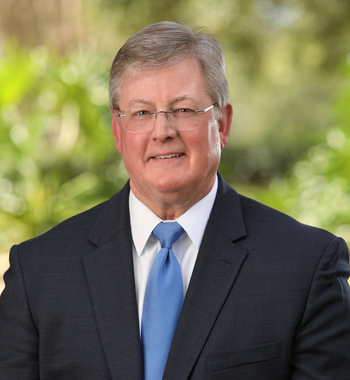
By Mike Joyner
Shortly after President Barack Obama was inaugurated in 2009, he met with the Republican leadership. When Republicans began to aggressively push back on his policies, he simply stated, “Elections have consequences … and I won.” President-elect Donald Trump won the election, and we expect there will be swift and aggressive change.
The newly appointed members of Trump’s cabinet and Republican members of Congress are responsible for implementing these changes. For those in agriculture, it’s important to advocate for the policies that will benefit the farm economy the most. Here is an overview of some key cabinet appointments as they stand at the time of this writing and how they might impact agriculture.
Brooke Rollins
Brooke Rollins has been chosen to lead the U.S. Department of Agriculture (USDA). With a staff of over 100,000 and a $430 billion budget, she has stated her commitment to supporting American farmers, ensuring food self-sufficiency and revitalizing agricultural communities.
Formerly the chief executive officer of the American First Policy Institute, Rollins has agricultural roots and understands what President-elect Trump wants to accomplish. Her early priorities will include tackling the 2025 farm bill and trade tariffs.
Once she is confirmed, the Florida Fruit & Vegetable Association (FFVA) will advocate for fair trade policies as the United States-Mexico-Canada Agreement review begins in 2025. Another priority for FFVA is a farm bill incorporating commonsense policy changes, such as improved crop insurance, funding for mechanization and promoting domestic consumption.
Lori Chavez-Deremer
The impact that the U.S. Department of Labor (DOL) has on our industry has grown exponentially. With the selection of Republican Congresswoman Lori Chavez-DeRemerof Oregon, the direction the DOL will take is uncertain.
The agricultural industry will urge commonsense changes to expedite the H-2A visa process, penalize bad actors and protect farmworkers. To support this work, Congress must pass laws that reflect changes in our business, providing more certainty to farmworkers and employers. The industry is not sustainable with outdated laws and methodologies, including a flawed farm labor survey that recently increased the adverse effect wage rate in Florida by 10%.
Collectively, Commerce Secretary Howard Lutnick, USDA Secretary Rollins and the next U.S. trade representative must immediately address the growing U.S. agriculture trade deficit. The United States has experienced a trade deficit in agriculture for the third consecutive year, and it is expected to reach a record high of $42.5 billion in fiscal year 2025. USDA projects exports will fall to $169.5 billion while imports will rise to $212 billion. Food security is national security, and we cannot rely on other countries to feed our citizens. A change in farm and trade policies is needed now to stop these alarming and dangerous trends.
Other Key Positions
Last, but certainly not least, the industry should be encouraged by the appointment of U.S. Sen. Marco Rubio to secretary of state, Congressman Mike Waltz as national security advisor and former Florida attorney general Pam Bondi as U.S. attorney general. They have been staunch supporters of Florida agriculture and understand your challenges. We anticipate they will remain champions of the industry in their new roles.
The voters have spoken, and the message is clear: Significant changes are urgently needed. For farmers, this means new policies to tackle the industry’s biggest issues, and these cabinet appointees will play a pivotal role in driving change.
Mike Joyner is FFVA president.









